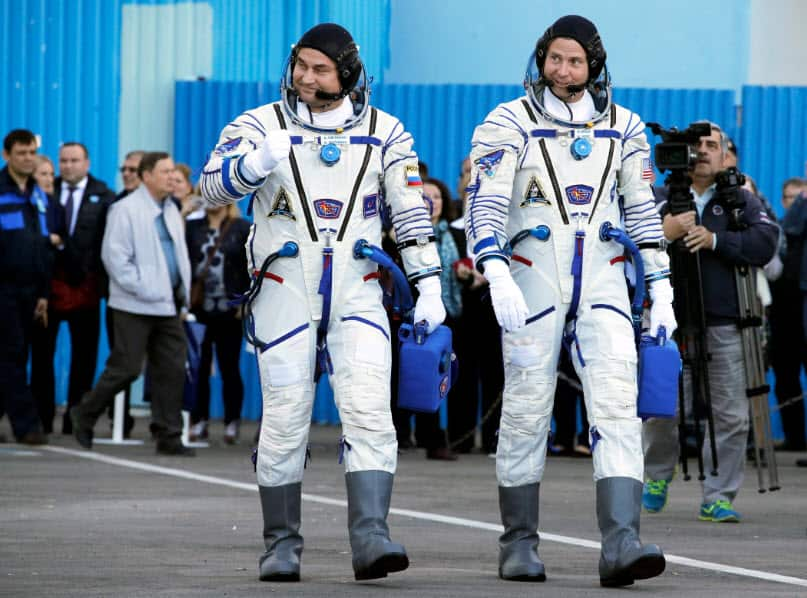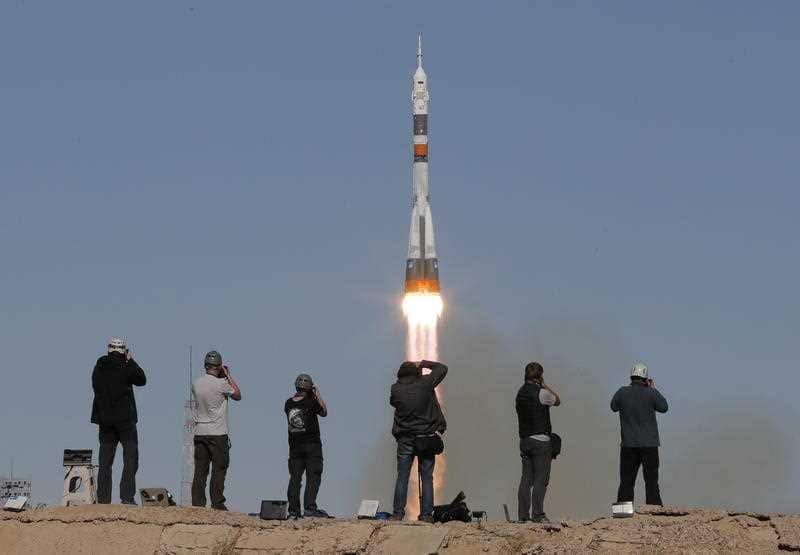Independent aviation expert Vadim Lukashevich has claimed the space industry is showing signs of a crisis following the loss of another spacecraft.
American Nick Hague and Russian Aleksey Ovchinin were bound for the International Space Station but were forced to make an emergency landing when their Soyuz rocket failed shortly after blast-off on Thursday, in a major setback for Russia's space industry.
The pair were rescued without injury.
The industry has suffered a series of problems in recent years, including the loss of a number of satellites and other spacecraft. Officials said they would suspend manned launches in the light of the latest incident.
Mr Lukashevich - who worked at Sukhoi experimental design office for seven years - said the Russian space industry was showing signs of neglect from authorities.

Roscosmos cosmonaut Alexey Ovchinin (L) and NASA astronaut Nick Hague were confident before liftoff Source: AP
"The leaders of our country do not understand what space industry is needed for. For us now space industry is like a suitcase without a handle, hard to carry, sad to drop. That is where all the problems come from," Mr Lukashevich said.
"It survives by itself somehow. (Authorities say) - guys what do you need? Money? Here, take some money? Something else? Please. Just do not complain. But there is no serious centralised attention to the industry."
The expert said the emergency rescue system worked as it should when the spacecraft started spinning.
But said it is a concern when astronauts are put at risk, claiming the situation is becoming more dangerous.

The Russian rocket, bound for the ISS, takes off from the launch pad at the Russian leased Baikonur cosmodrome, Kazakhstan. Source: AP
"This is sad because until now all the emergencies with our Soyuz, Proton rockets, orbital satellites, Fobos-Grunt etc did not concern piloted space launches, because after all in piloted space launches safety standards are really high. And now it happened," he said.
"So the situation is getting more dangerous. Today we avoided a disaster because the safety rescue system worked out. Thank God. But this is a reason for deep thoughts if it is already a piloted launch that fails."
The Soyuz incident came as the rocket was travelling about 7,563km/h, just 119 seconds into the voyage, according to NASA.
"Shortly after launch, there was an anomaly with the booster and the launch ascent was aborted, resulting in a ballistic landing of the spacecraft," the US space agency said in a statement.
Share

